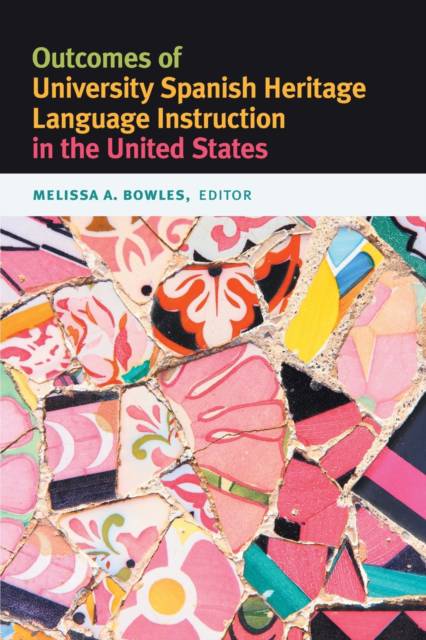
- Retrait gratuit dans votre magasin Club
- 7.000.000 titres dans notre catalogue
- Payer en toute sécurité
- Toujours un magasin près de chez vous
- Retrait gratuit dans votre magasin Club
- 7.000.0000 titres dans notre catalogue
- Payer en toute sécurité
- Toujours un magasin près de chez vous
Outcomes of University Spanish Heritage Language Instruction in the United States
Description
The first volume to explore the effectiveness of instructional methods for college-level Spanish heritage learners
In the United States, heritage language speakers represent approximately 22 percent of the population and 29 percent of the school-age population. Until now, though, few studies have examined the outcomes of classroom teaching of heritage languages.
Outcomes of University Spanish Heritage Language Instruction in the United States sheds light on the effectiveness of specific instructional methods for college-level heritage learners. The first of its kind, this volume addresses how receiving heritage classroom instruction affects Spanish speakers on multiple levels, including linguistic, affective, attitudinal, social, and academic outcomes. Examining outcomes of instruction in the Spanish language-the most common heritage language in the United States-provides insights that can be applied to instruction in other heritage languages.
These thematically linked empirical studies and their pedagogical implications build a foundation for heritage language instruction and directions for future research. Scholars and educators alike will welcome this volume.
Spécifications
Parties prenantes
- Editeur:
Contenu
- Nombre de pages :
- 264
- Langue:
- Anglais
- Collection :
Caractéristiques
- EAN:
- 9781647122232
- Date de parution :
- 01-04-22
- Format:
- Livre broché
- Format numérique:
- Trade paperback (VS)
- Dimensions :
- 152 mm x 229 mm
- Poids :
- 376 g

Les avis
Nous publions uniquement les avis qui respectent les conditions requises. Consultez nos conditions pour les avis.





